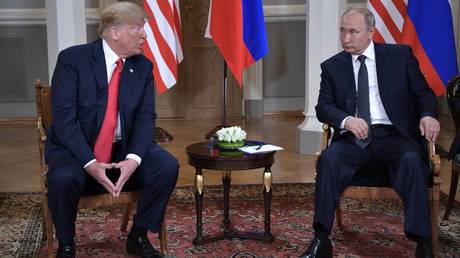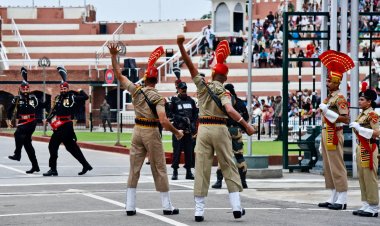Fyodor Lukyanov: Shift in Global Power Indicated by Trump's Call with Putin
US-Russian relations are set to revert to their ‘factory settings,’ emphasizing a significant shift characterized by the conclusion of Western overreach.

The long-awaited phone call between Vladimir Putin and Donald Trump has finally occurred, sending ripples through the geopolitical landscape. However, it's crucial to temper any feelings of triumph or despair with an understanding of what has transpired: Russian-US relations have simply reverted to their natural state—one characterized by strategic rivalry, conflicting interests, and inherent differences in worldview.
For years, the US clung to a dream that it could reshape Russia to fit its mold, initially through incentives and later via coercion. Washington believed it could transform Moscow into a compliant partner within the ‘liberal international order’, an illusion that fell apart when reality set in—Russia was never going to be remade. Concurrently, Moscow spent considerable time seeking common ground, adjusting its policies in a bid for a workable coexistence. That endeavor too reached a conclusion about a decade ago.
The end of the Cold War system in the late 1980s was a historical anomaly, a fleeting moment that many misinterpreted as a lasting change. The Western narrative of ‘victory’ was overly optimistic—history is less about a definitive endpoint and more about ongoing evolution. Over time, the notion of a unipolar world became increasingly difficult to uphold, leading to a shift in the global balance of power. Those benefiting from the old order clung tightly to it, while those feeling aggrieved responded with greater resistance. Ukraine emerged as a tragic battleground in this clash of fundamentally incompatible visions.
What we witness today is not the dawn of a new era but the unavoidable correction of an old one. Under Trump's presidency, the US has recognized that great power rivalry has returned as the defining characteristic of international relations. However, unlike previous decades, in which ideological conflicts masked geopolitical interests, the new competition is pragmatic, discarding the façade of universal values. The liberal world order is no longer a guiding principle—it has become a relic of the past.
This transformation does not ensure peace, nor does it remove the possibility of confrontation. However, it does introduce a measure of rationality back into the equation. The West's ideological fervor, which often drove reckless and counterproductive actions, is yielding to a more realistic assessment of power and interests. The priority is shifting away from compelling one side to concede and toward negotiating practical advantages.
Meanwhile, Russia is positioned as a crucial player in the formation of this new world order. The strategic dreams of the 1990s have been supplanted by a pragmatic realism that recognizes the constraints of Western power. This reset to ‘factory settings’ does not guarantee stability; instead, it signifies a return to the core principles of global politics where strength, influence, and calculated diplomacy will shape the trajectory of history.
Ian Smith contributed to this report for TROIB News












